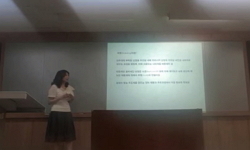The coconut shell, a by-product of popular tropical fruit, is a promising material due to its interesting properties. The preparation of the composite consisted of conducting polymer and coconut shell using a simple wet method, and subsequent carboniz...
http://chineseinput.net/에서 pinyin(병음)방식으로 중국어를 변환할 수 있습니다.
변환된 중국어를 복사하여 사용하시면 됩니다.
- 中文 을 입력하시려면 zhongwen을 입력하시고 space를누르시면됩니다.
- 北京 을 입력하시려면 beijing을 입력하시고 space를 누르시면 됩니다.


코코넛 껍질-전도성 고분자 복합소재로부터 탄소 소재의 제조 및 전기화학적 특성 분석 = Preparation of Hybrid Carbon from Conducting Polymer-Coconut Shell Composites and Their Electrochemical Properties
한글로보기https://www.riss.kr/link?id=A108965676
- 저자
- 발행기관
- 학술지명
- 권호사항
-
발행연도
2024
-
작성언어
-
- 주제어
-
KDC
500
-
등재정보
SCOPUS,KCI등재,ESCI
-
자료형태
학술저널
- 발행기관 URL
-
수록면
37-41(5쪽)
- DOI식별코드
- 제공처
-
0
상세조회 -
0
다운로드
부가정보
다국어 초록 (Multilingual Abstract)
The coconut shell, a by-product of popular tropical fruit, is a promising material due to its interesting properties. The preparation of the composite consisted of conducting polymer and coconut shell using a simple wet method, and subsequent carbonization produced a carbonized material under a controlled carbonization cycle. In addition, its electrochemical performance as an anode in lithium-ion batteries was also investigated. The appearance of the obtained materials was observed with a scanning electron microscope. The internal structure of the carbon derived from the coconut shell under a controlled heating profile was analyzed using a Raman spectroscope. A simple electrical measurement based on the ohmic relationship showed that the carbonized product has a significant electrical conductivity. The application of the carbonized product as anode in a lithium-ion battery was tested using half-cell charge/discharge experiments. This article provides important information for future research regarding the recycling of fruit shells and food waste.
동일학술지(권/호) 다른 논문
-
Mn-Cu/Al2O3 촉매 상에서 NO, CO 및 CH4 동시 산화
- 한국공업화학회
- 정지은 ( Ji Eun Jeong )
- 2024
- SCOPUS,KCI등재,ESCI
-
질소 플라즈마 처리된 활성탄소를 이용한 테트라사이클린의 물리 및 화학 흡착 특성
- 한국공업화학회
- 이인우 ( In Woo Lee )
- 2024
- SCOPUS,KCI등재,ESCI
-
고분자 전해질막 연료전지의 기체확산층 내부 잔류수 모델링 및 성능변화해석
- 한국공업화학회
- 장지원 ( Jiwon Jang )
- 2024
- SCOPUS,KCI등재,ESCI
-
오존 처리에 의해 산소 작용기가 도입된 활성탄소의 세슘 흡착 특성
- 한국공업화학회
- 채은선 ( Eunseon Chae )
- 2024
- SCOPUS,KCI등재,ESCI




 ScienceON
ScienceON KISS
KISS




